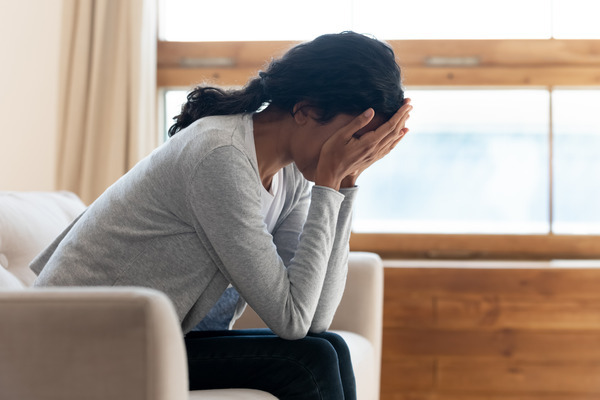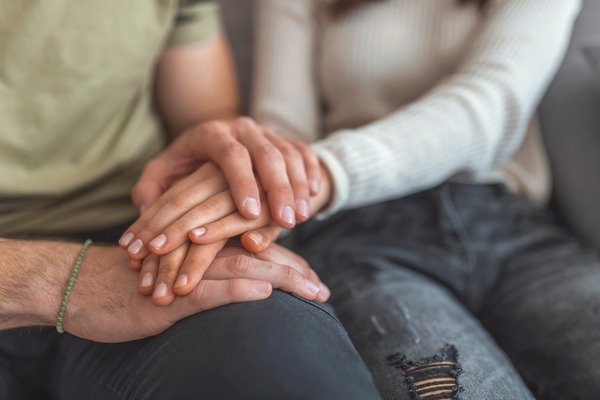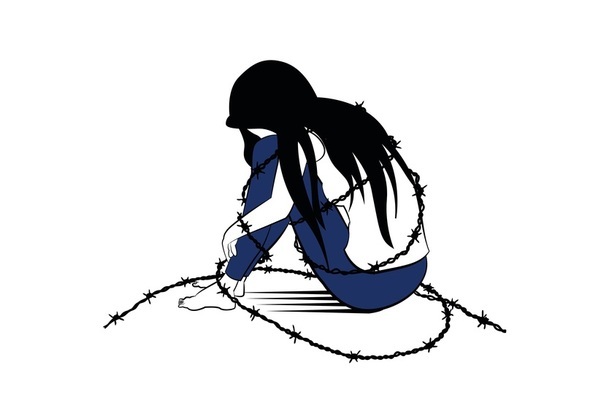What can we do when faced with the loss of a loved one? How to face these moments? Discover the keys to overcoming the loss of a loved one.
Grief is the process we experience when we face a significant loss in our lives. Faced with the adversity of the death of a loved one, we have no choice but to look death in the eyes, receive it and face it. It is a painful experience for which we are not usually prepared, however, it is through grief that we manage to “chew” the pain, “digest it” and turn it into a teacher of life. But,How can we get over the death of a loved one? ?
How do we usually feel when we lose a loved one?
When we lose someone we love we are invaded by a host of feelings and emotions that are difficult to cope with:
- Rage: When death is traumatic or sudden, we feel the force of a devastating tsunami that turns our lives upside down. Rage and anger invade us like a hurricane that destroys everything in its path, and we get angry with the world looking for culprits left and right to alleviate the pain, because we are still not able to accept that life and death are not something that is in our hands.
- Melancholia: We tend to fantasize about everything we could have done differently to avoid that death, in an attempt to turn back time, imagining how precious life would be if the person who left was still with us. And in all this, we wear ourselves out, losing the little energy we have left.
- Sadness and fear: There comes a time when these fantasies no longer serve us, and that is when we face the irreversibility of death, falling into the void and deep well of pain. Sadness, fear, uncertainty about what is to come, confusion, desperation, impatience, irritability…
- Acceptance: We ask ourselves hundreds of whys for which we do not find answers, and we end up facing silence… And it is precisely there, in that silence, where we begin to find the answers we need to continue with our lives, learning to live with the loss and grow through it.
Sometimes, the duel It becomes a difficult path to travel, and can become a complicated or pathological process. In these cases, it is essential to have specialized psychological care to help the mourner manage the loss and readjust their life to the new reality.
However, it is not necessary to reach that situation to request psychological attention. “More and more people come to our consultation to find a space that allows them to express their emotions and make peace with the loss, learning to relate in a different way with the person who is gone and to look towards the future with a renewed perspective.“. “The needs of each person are different and, therefore, each grieving process is unique, requiring individualized attention.”
In a society that pushes us more and more to get out of pain, it is absolutely necessary to have specialized professionals who help us manage our grief, express our feelings, resolve pending issues and re-embrace life and the future with renewed hope. .

How to overcome the death of a loved one?
There are some strategies that can help you overcome the sadness you may feel when a loved one dies. Even so, as we have mentioned, grief is a process that we must experience and accept when a loss occurs. In this way, we can have the following coping strategies when faced with the loss of a loved one :
- Take time for introspection and reflection: After a loss, you may feel like your life has no meaning. Some researchers have called this feeling a ‘crisis of meaning’ and have found that reconstructing this meaning may be a way forward for overcome sadness at the loss of a loved one in a healthy way. Thus, given these feelings, we recommend that you try to dedicate more time and energy to spending quality time with your loved ones. Additionally, you can also journal about how your loved one helped you identify and build meaning in your life.
- Talk about your feelings: When something shocking happens in our lives, including the loss of a loved one , we tend to want to talk about it. Especially during the early stages of grief, sharing our thoughts and feelings with others can be both enlightening and cathartic. Therefore, it is important that we try to talk about these feelings when we are ready to do so.
- Stay connected with who you’ve lost: People who are grieving often maintain some type of lasting connection with the deceased. In other words, holding on to someone can in some cases be useful and even healthy in overcoming the loss of a loved one. In fact, researchers have identified four ways in which people who have lived The death of a loved one They maintain links with them:
- Feeling the presence of the dead, or feeling that your lost loved one is near you or at your side. While this may seem strange to some, it appears to be a common experience and also potentially useful.
- Talk to the dead, either out loud or in your head.
- Use the deceased as a kind of moral guide. For example, they can imagine how the person you’ve lost would have handled a particular situation or dilemma they faced.
- Talk to other people who knew the deceased, such as friends or family, to learn more about the person they have lost.
We should note that staying connected in this way is very different from not accepting that a loved person is gone. The inability to accept what has happened can be a sign of pain that should be consulted with a professional psychologist.









